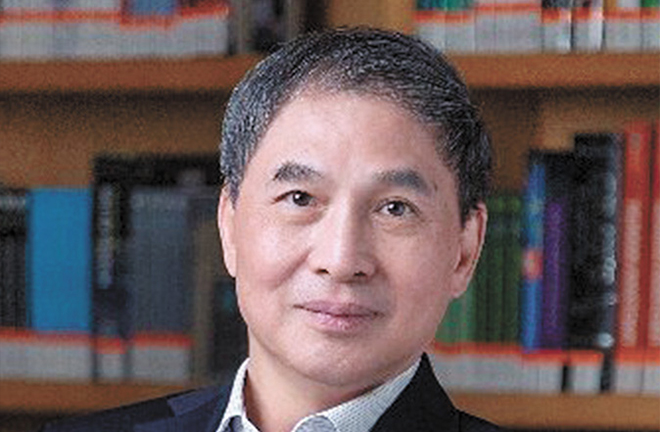How to build a leading power in knowledge

We’ve been talking about building a great modern socialist country. Personally, I think a great modern socialist country not only leads in the material and institutional sense, but is also advanced in terms of knowledge systems, in the intellectual sense. China is the second largest economy in the world, but we are still deficient in many aspects, such as original knowledge and original ideas. In modern times, social sciences have been learned or imported from the West. Over time, the social sciences’ theoretical system has been deeply influenced by the West, mainly in the following aspects.
First, our understanding of history is still basically Eurocentric. The way we divide stages of history is mainly influenced by Europe. In terms of the slave society, the West witnessed a large-scale slave society, but at least since Qin Shi Huang unified China, there has been no such large-scale slave society. The same is true for the emergence of capitalism. Why did we argue for many years about the emergence of capitalism in the Ming (1368–1644) and Qing (1644–1911) dynasties? It is mainly because modern capitalism which emerged in the West matched the emergence of capitalism in the Ming and Qing dynasties in China. I think from the perspective of China’s own history, the Tang (618–907) and Song (960–1279) dynasties may have more capitalist features than the Ming and Qing dynasties.
Second, our understanding of reality, especially the understanding of China’s reform and opening up, is too Americanized. We have learned a lot of “quantitative” social sciences in these micro fields. When we use these methods to study China, there is an Americanization tendency. China’s politics and economy need to develop, but they may not necessarily duplicate American-style market liberalization or American-style democratization. We have our own marketization and democratization path.
Third, in the West, a professor is a professional knowledge creator. Our professors still basically impart knowledge. We teach students either Chinese classical history or Western theoretical knowledge, but we lack originality. So I think our professionalism, the spirit of knowledge creation, like those of Western social scientists, has not yet been established. We see the lack of our own original knowledge system in the international arena, and the lack of soft power is not only harmful to scholarship and academic research, but also detrimental to politics.
So what should be done? First, I think scholars and intellectuals should be allowed to independently create and pursue original knowledge. We have been talking about “law-based governance” for many years. I’d like to propose a concept of “law-based knowledge and research.” Knowledge does shoulder due responsibilities, because intellectuals have a great voice, and the more influential they are, the greater their right to speak. But you still need to be responsible and have boundaries in speaking. For these responsibilities and boundaries, I don’t think we need to deal with them in numerous political ways, but must regulate them in legal ways.
Second, we should think about the methodology. The Western social science sector is the result of Western social scientists using these methodologies to observe their social practices and interpret their history. They use these methodologies to interpret their history, observe their practical experiences, and elevate them to conceptual theories. Therefore, I personally do not advocate that we should learn Western conceptual theories, but we should learn more objective social methods and use them to re-observe our practical experiences in reality and history, and construct our social science theories using these scientific methods. It is very important to construct social science theories based on our practical experiences.
Third, I think our teaching and research system needs to be reformed. Administrative management is necessary in every country, but the administrative system should not be allowed to dominate academic activities. Moreover, I think our scientific research system and large scientific research funds should be tilted towards young people. In addition, our evaluation system needs to be reformed. The current evaluation system is too Westernized and even more Westernized than the West. Because the Western evaluation system is diversified, we have also unknowingly learned these valuation systems from the West, and review our academic activities in a rigid manner. But on the contrary, it has greatly restricted or even stifled our academic and intellectually creative activities.
Finally, I want to especially emphasize that as scholars, we need to build an identity, because our scholars are not independent. I think whether some are dependent on politics or capital there is a new trend in social media that everything is about network traffic. So I think our scholars’ identities as professional knowledge creators must be independent, and free of capital and network traffic. Without an identity, it is very difficult to create original knowledge and ideas, even with the best of conditions.
Zheng Yongnian is a professor from Chinese University of Hong Kong, Shenzhen, and president of the Institute for International Affairs, Qianhai. This article was edited from his video speech submitted to the forum.
Edited by YANG XUE
